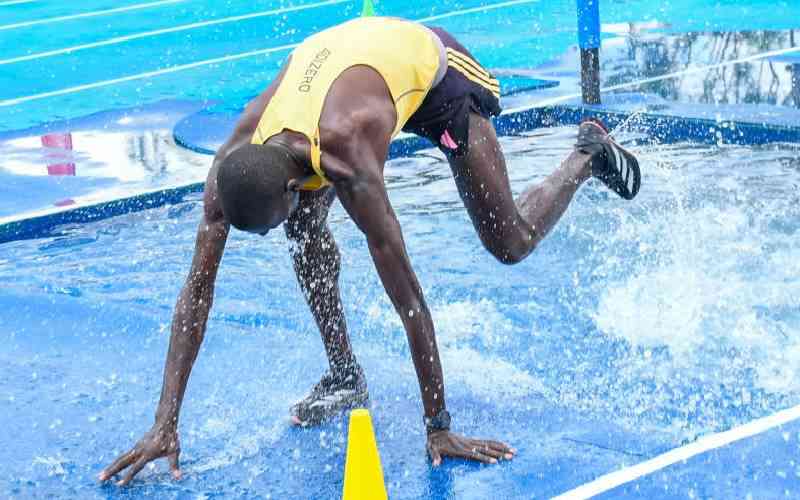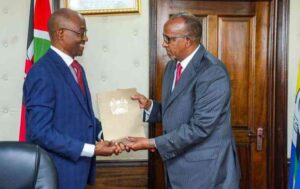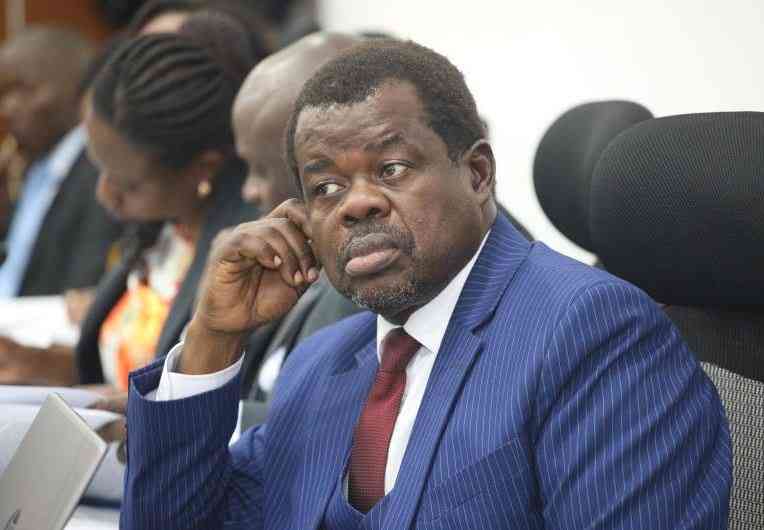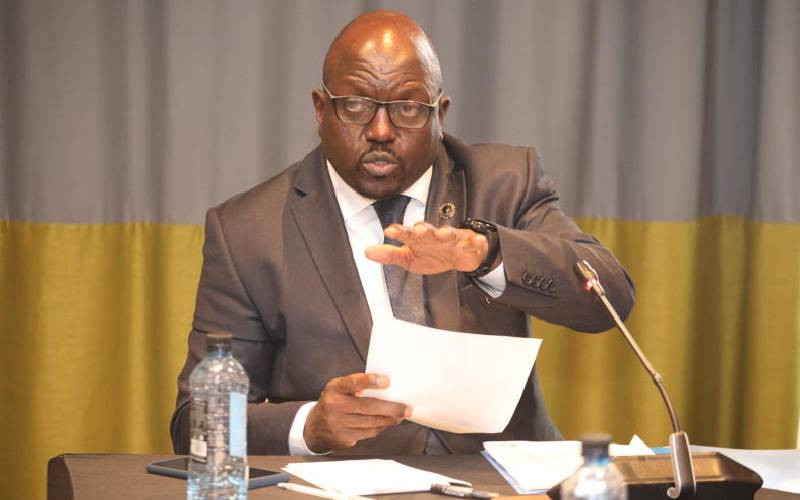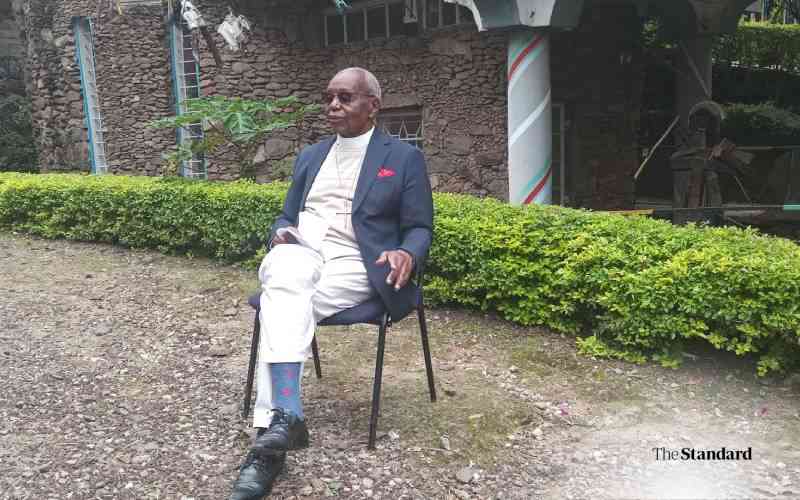As the crowd roared with excitement and feet pounded the newly laid tartan track at the Nakuru’s Afraha Stadium, the fourth leg of the Betika Athletics Kenya (AK) track and field meet over the weekend offered more than a showcase of speed of speed, strength, and skill.
It was a celebration of both rising stars and seasoned champions lighting up the stadium. But behind the cheers and championship dreams, another race was quietly unfolding, a race not for medals, but for integrity.
In the shadows the Anti-Doping Agency of Kenya (Adak) and AK were on the sidelines, their mission was central to reclaim the soul of Kenyan athletics from the taint of doping.
Adak officials, strategically placed tents around the stadium. Their role was not just enforcement but also to educate.
Athletes of all levels, coaches, managers, and even journalists were taken through eye-opening anti-doping awareness sessions, which culminated in a simple but impactful 10-question quiz that challenged participants to think critically about doping, its consequences, and their responsibility.
“We are here to educate and create awareness, and we are also testing participants to ensure that those who win, win clean. That their victory is one they deserve,” said Dr Martin Yauma, Adak’s Head of Education and Research.
When each race ended, Adak personnel would be seen quietly escorting winners off the track to the testing room.
With the World Championships in Tokyo on the horizon, AK has launched one of its most aggressive anti-doping campaigns yet. A total of 444 athletes have been placed under strict scrutiny, local and international stars alike. Out of competition testing is now mandatory, unannounced, and non-negotiable. A missed test equals instant disqualification.
AK President Jackson Tuwei sounded the alarm saying as a country they must act swiftly and decisively. He stressed that doping is not just about substances it is about discipline, education, and a collective culture of clean sport.
“There is more to this than just testing, athletes need to understand the rules, the timelines, the qualification standards, and how anti-doping systems work. They must take at least three tests before the July trials. And they must know when and how those tests are scheduled,” Tuwei said.
Tuwei emphasised the role of coaches, managers, officials, and the media in shaping a culture of integrity. One area of concern is the whereabouts rule, which requires athletes to constantly update their location so they can be tested randomly.
“This is where many go wrong. They move and forget to inform the authorities. If you cannot be found, you are considered non-compliant,” he warned.

Perhaps most concerning, Tuwei said, is that doping may already be creeping into the lives of younger generations.
“We are seeing signs of drug use even among school-going children. By the time they become professional athletes, some have already experimented with performance-enhancing drugs. That is devastating,” said Tuwei
Asked whether Kenyan athletes are seeking shortcuts to glory, Tuwei did not shy away from the possibility. The pressure to win, the allure of fame, and the lure of quick success are all temptations. But he urged the country to look deeper.
“Who supplies the drugs? Who encourages this? The athlete is the one who gets caught, but there is a whole network behind each case. We need to confront the entire system,” he said.
To Tuwei, doping is nothing less than betrayal, not just of one’s competitors, but of an entire nation.
“We cannot lie to the world. When we say our athletes are clean, they must be clean. Doping risks the athlete’s health, destroys the sport’s credibility, and tarnishes Kenya’s global image,” he said
His message was echoed by Olympic legend Ezekiel Kemboi, a two-time Olympic gold medalist and four-time world champion in the steeplechase, who made an emotional plea to young athletes.
“There are no shortcuts in life. True victory comes from honest training, discipline, and hard work. Coaches and managers must guide athletes, not push them into paths that ruin careers and stain our legacy,” Kemboi said.
Kemboi’s words hit home, especially given the painful fall of once-great heroes.
Asbel Kiprop, Kenya’s former golden boy in the 1500m. A 2008 Olympic champion and three time world champion, Kiprop was banned in 2019 for EPO use. His denials fell flat, and his four-year suspension wiped out his legacy.
Asbel is not alone. Few days ago the Athletics Integrity Unit (AIU) banned Kenyan marathoner Brimin Misoi Kipkorir for allegations of violating anti-doping rules.
In a statement released by AIU on April 1, the 35-year-old athlete was banned for five years after he tested positive for erythropoietin and furosemide.
“The AIU confirms by this decision the following consequences for a first Anti-Doping Rule Violation: a period of Ineligibility of five years commencing on February 17, 2025 and disqualification of the Athlete’s results since November 22, 2024, with all resulting consequences, including the forfeiture of any medals, titles, awards, points, prizes, prize money and appearance money,” stated AIU.
The probe started in November 2024 when Kipkorir submitted a urine sample in Kaptagat, which was later taken to the World Anti-Doping Agency in Switzerland.
Laboratory results revealed that the urine sample contained the prohibited substance furosemide.
In October 2024, Charles Kipkurui Langat, winner of the Barcelona Half Marathon, was banned for two years.
The list of suspensions is growing and with it, Kenya’s reputation is on the line. At one point, World Athletics threatened Kenya with a blanket ban, narrowly avoided only through emergency reforms and swift action.
“When a Kenyan crosses the finish line first, the world should believe we are putting all measures in place to guard our integrity,” said Tuwei.
As trials for the World Championships approach, athletes must pass a minimum of three doping tests to qualify.








